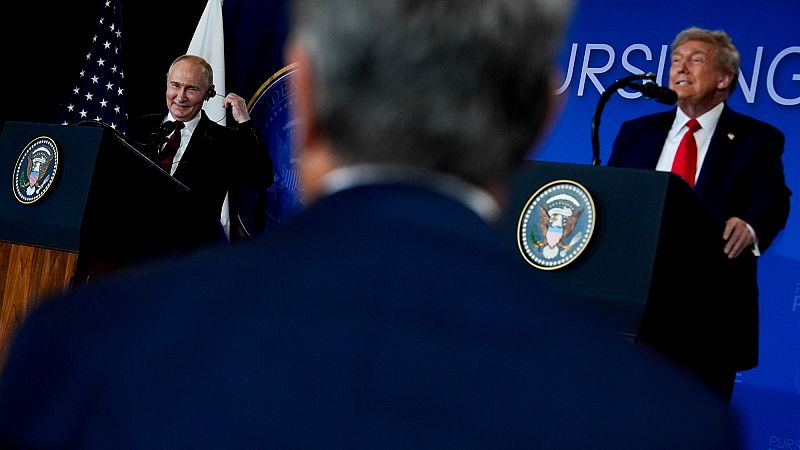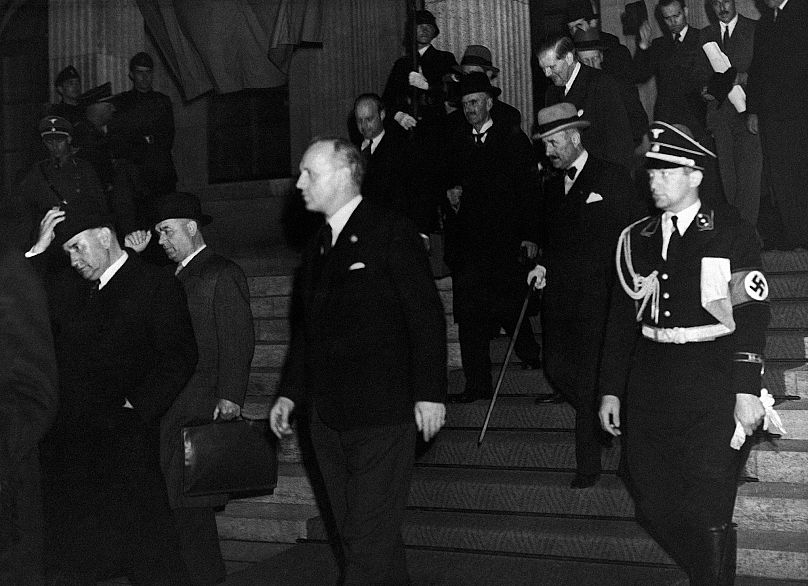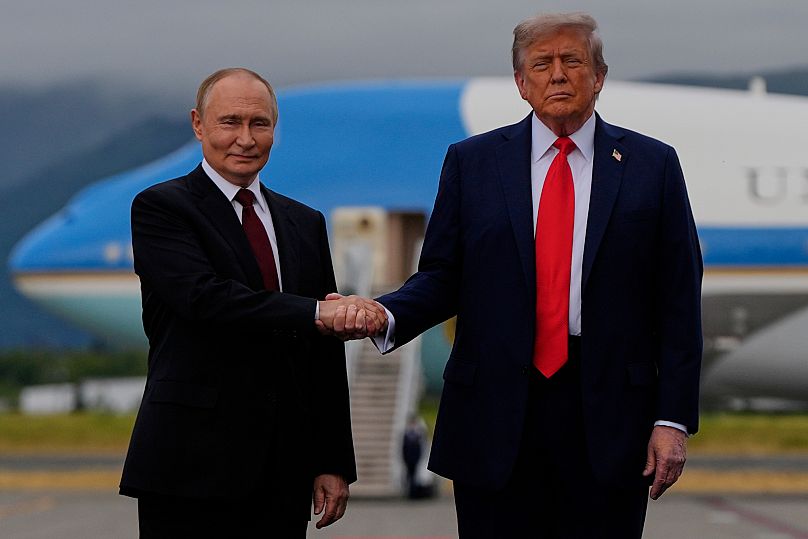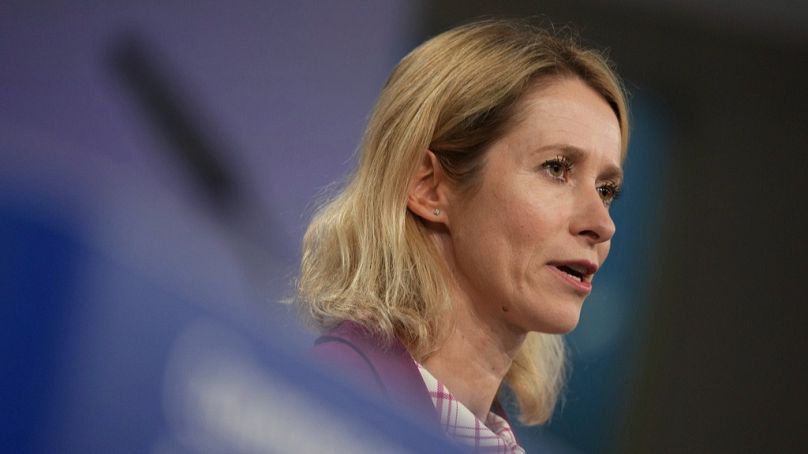
Russian President Vladimir Putin is "mocking" his US counterpart Donald Trump's attempts to end the war in Ukraine, the European Union's foreign policy chief Kaja Kallas said in a recent Euronews interview.
"Putin is just mocking all of Trump's efforts .... after the talks in Alaska, Putin has just increased his attacks," Kallas said last week.
Back in February, on the fringes of a meeting of EU defence ministers, Kallas accused the new leadership in Washington of pursuing a course of appeasement over Russia's full-scale invasion of Ukraine.
"Why are we giving (Russia) everything it wants even before the negotiations have begun?" she said, criticising Trump's compliance with the Kremlin's wishes. "This is appeasement, it has never worked!"
The term "appeasement" is heard increasingly often in contentious debates, almost always with negative connotations. But what exactly does it mean?
Few are better placed to provide an answer than Christian Goeschel, a historian and senior lecturer in modern European history at the University of Manchester.
"Since 1938, when British Prime Minister Neville Chamberlain and his French counterpart Edouard Daladier made concessions to Nazi Germany over the head of Czechoslovakia, the word appeasement has acquired a stale flavour in common parlance and in political debate," Goeschel told Euronews
"It is the attempt to avoid armed conflicts and wars by making far-reaching concessions," said the historian, the co-author of a new book Munich '38 - The World at the Crossroads that will be published early next year.

Parallels with Munich 1938
At the Munich Conference in 1938, Chamberlain and Daladier caved in to Adolf Hitler's threats. Great Britain and France left Czechoslovakia in the lurch. The Munich Agreement stipulated that Czechoslovakia had to cede the Sudetenland region to Germany and vacate the territory within 10 days.
Chamberlain and Daladier were taken in by the German dictator's empty promises and instead of keeping the peace, Hitler unleashed World War II just a few months later.
Goeschel said that parallels can be drawn between the situation in Munich in 1938 and Russia's current demand for large parts of eastern Ukraine, although he stressed that any comparison should not be seen as an equation.
"We can't simply equate Putin with Hitler, that's not the point," Goeschel said.
"It's about how liberal democracies, how the West, should proceed in order to preserve fundamental values, i.e. freedom, democratic separation of powers and the right of peoples to self-determination."
"It is about better understanding what can happen if Western powers behave too timidly towards expansionist dictatorships and allow them to take over territories," he added.

Since Trump's re-election to the White House, the situation has become more complicated, according to the historian.
"Trump's behaviour towards Putin is not very robust compared to the more dominant behaviour of his predecessor Biden," he said.
If Trump or any Western powers were to strike a deal with Putin over Ukraine's head, that would be "catastrophic because it would fuel Russia's appetite for further territorial conquests", Goeschel added.
'Testing the West'
In a German context, Euronews asked Goeschel whether appeasement would be the correct term to describe the policy positions on Russia held by the country's new leftist party Sarah Wagenknecht Alliance (BSW) or the far-right Alternative for Germany (AfD).
The historian said he did not think that was the case, pointing to "countless attempts to appease Putin, quite independently of the so-called Russia apologists".
"There was the Minsk Agreement, in which the then German Chancellor Angela Merkel played a key role. The red-green government under Gerhard Schröder made concessions to Russia. So many futile attempts have been made internationally to appease Putin," he added.
Goeschel said there is a complete misjudgement of the military goals of Russia on the part of Western powers. Furthermore, Western democrats want to avoid war while Europe's military defence readiness is not in good shape, he added.
"We have relied on the US military defence umbrella for too long. These are the main reasons why it took so long for us to wake up and realise how dangerous Putin is," he said.

In Kallas' interview with Euronews last week, she warned that Russia was testing the West and trying to divide EU countries in order to undermine support for Ukraine.
"Putin is clearly testing the West," said Kallas, "he is testing how far he can go. Now it's up to us how and how strongly we react, what we allow."
Goeschel said that historians can help inform politicians and get involved in political debates in times of crisis. They can also point to historical events to glean insight.
"At the time, other powers were also keeping a close eye on what was agreed in Munich in 1938. Japan and Italy, for example, learnt the lesson from the Munich Agreement that expansionist policies are possible," he said. "Politicians decide for themselves whether and what they want to learn from history, for better or for worse."







